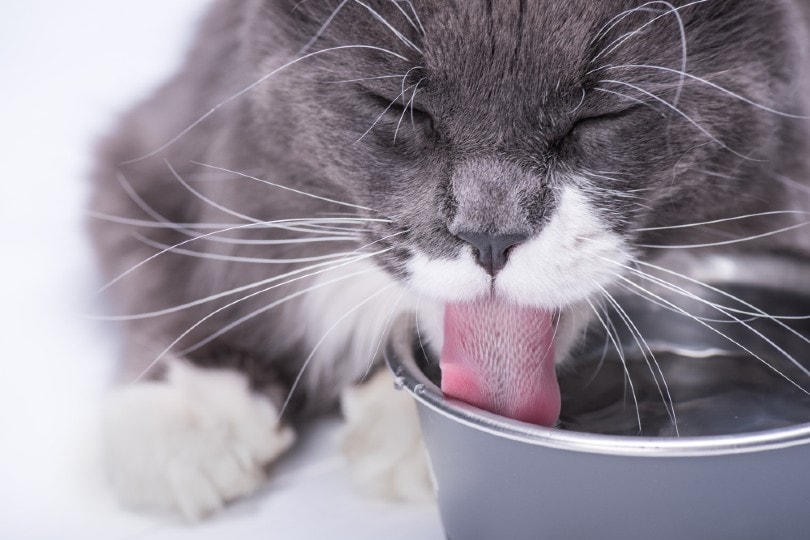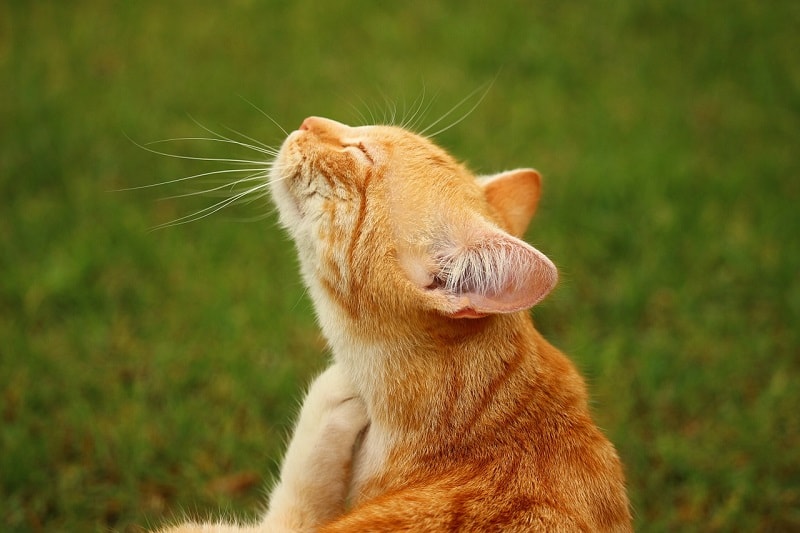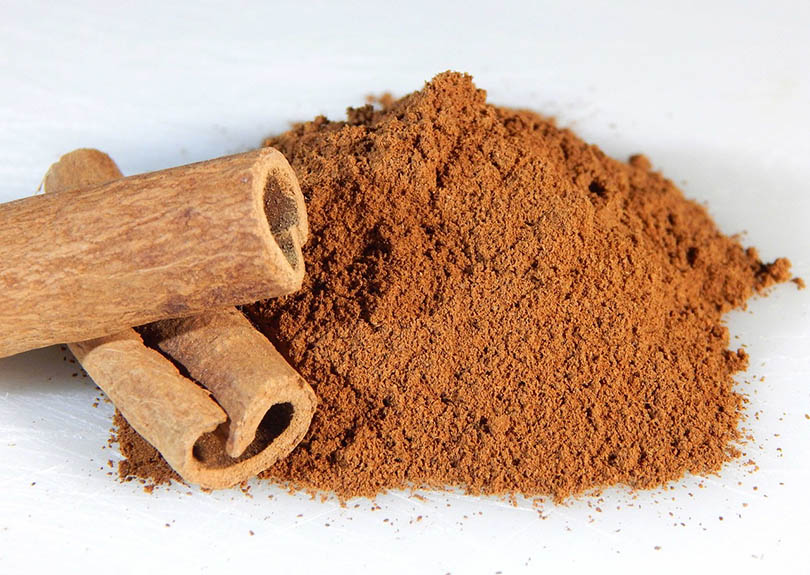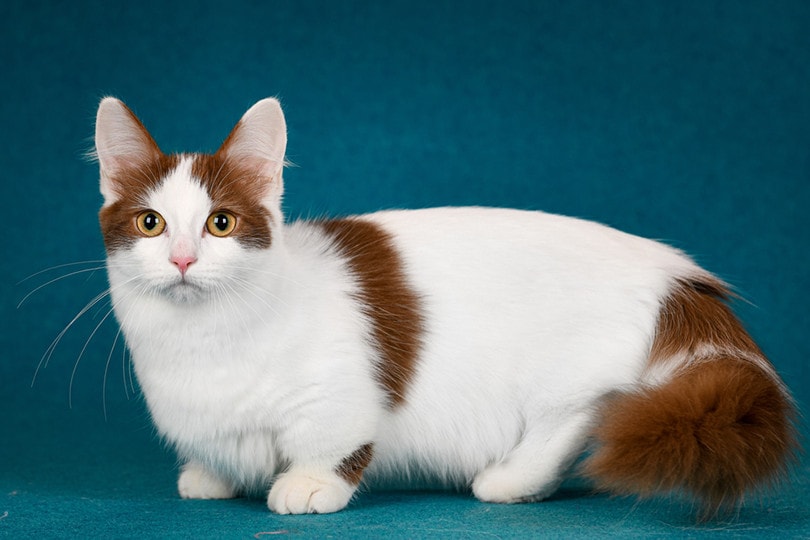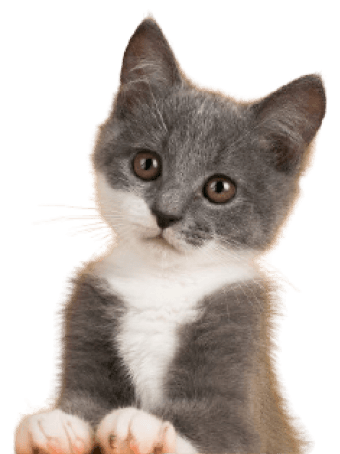VET APPROVED

The information is current and up-to-date in accordance with the latest veterinarian research.
Learn more »Click to Skip Ahead
As cat owners, we want what’s best for our feline friends. Given the significant role that water plays in maintaining a cat’s health, the importance of providing the right type of water cannot be overstated.
This article examines the various types of water and their suitability for cats. With the proper insight into this topic, you can ensure your kitty stays happy, healthy, and well-hydrated.

Understanding Cats & Their Hydration Needs
A cat’s hydration needs can be affected by various factors such as diet, physical activity, weather conditions, and more. As a general guideline, an average 8.8-pound (or 4-kilogram) cat should drink approximately one cup (200-250 milliliters) of water per day.
Maintaining the right balance is crucial. Proper hydration helps prevent health issues such as dehydration, urinary tract infections, and metabolic disorders. Ensuring your cat has constant access to fresh water is essential for their overall well-being.
The Quick Solution
In addition to finding the perfect water, cats will be encouraged to drink more with fresh water. Regular changes to their supply will keep the interested in visiting their water bowl. If you’re cat finds stagnant water to be a tad boring, you could also introduce a cat water fountain. They are more likely to be drawn into a steady flow of water.
Keeping your cat hydrated can be surprisingly difficult. A filtered water fountain like Hepper's Stainless Steel Cat Water Fountain can provide your cat with safe, flowing water free from dangerous bacteria and bad smells.
This dishwasher-safe fountain features advanced triple filtration, three different flow modes, and a modern, minimalist design. At PangoVet, we've admired Hepper for many years, and decided to take a controlling ownership interest so that we could benefit from the outstanding designs of this cool company!


The 4 Best Waters for Cats to Drink
1. Tap Water
Despite being the most common and accessible water source, tap water’s suitability for cats can vary significantly depending on its quality. Many cats are instinctively drawn to running water, probably a natural inclination toward fresh, oxygen-rich water. While this makes tap water an easy choice, there are a few considerations.
Tap water tends to be the simplest solution, and it should be a trusted source of water since it is regulated and checked to ensure it is safe for human consumption. With this in mind, you must ensure that your tap water is of the best quality for your cat. If you won’t drink it, your cat shouldn’t either.
In areas where tap water quality is questionable, consider using a water filter. These filters can remove many potentially harmful contaminants, providing your cat with cleaner, safer water. Remember, a cat’s water should ideally be fresh and free from harmful substances, making filtered tap water the more practical solution.
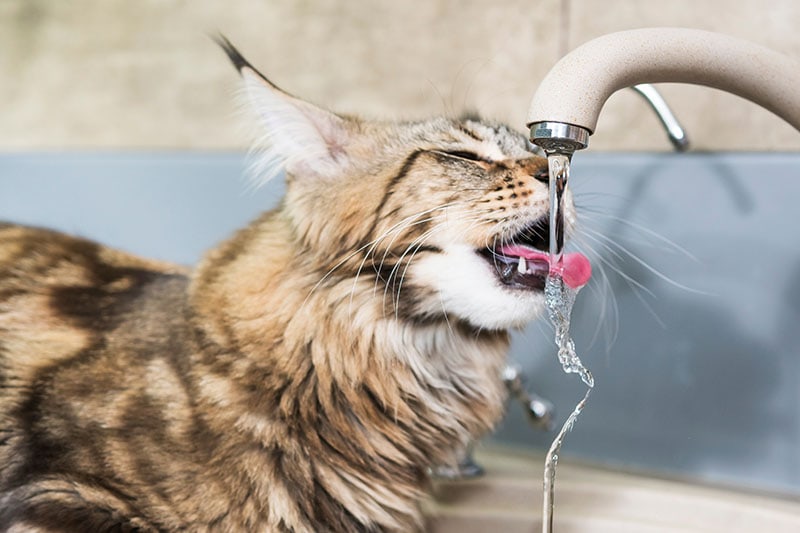

2. Bottled Water
If you’re looking for a more premium water source for your cat, bottled water might be the solution, especially those derived from underground natural reservoirs. You can usually find this information on the packaging.
However, continually buying bottled water can be expensive and may not be sustainable for everyone. An alternative is using tap water, but if it contains chlorine, letting it sit in an open container for several hours may help it dissipate. However, many water sources now use chloramine, which does not evaporate as easily. Using a carbon filter can be a more effective way to provide your cat with fresh, clean water.
3. Distilled Water
Distilled water is another type of water you might consider for your cat. It undergoes a process that removes all its minerals and particles, resulting in pure H2O. While this ensures it’s free from any harmful substances, it also means it lacks the beneficial minerals usually found in water.
Consequently, while distilled water can serve as a one-off water source, it shouldn’t be your cat’s main water supply. The absence of minerals might not provide the full range of hydration benefits your cat would receive from other water types.
4. Boiled Water
Boiling tap water may seem like a good way to remove impurities, but it’s not the most effective option for your cat. While boiling can eliminate bacteria and some chemicals, it does not remove dissolved minerals or salts. If your tap water is already high in minerals (hard water), boiling may slightly concentrate them due to evaporation, but the effect is usually minimal.
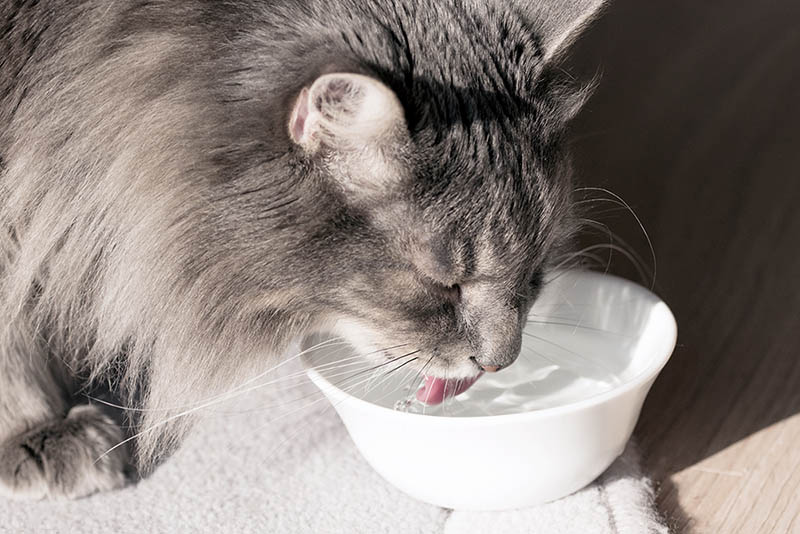


Encouraging Your Cat to Drink More Water
If your cat isn’t drinking enough, you can try various strategies to encourage more water consumption. Placing multiple water bowls around the house in unexpected places can spark your cat’s curiosity and increase its water intake. Switching from dry to wet food can also help, as wet food contains over 70% water.
Some cats prefer running water and might enjoy drinking from a cat water fountain. Monitoring your cat’s drinking habits can also be helpful, especially for those who tend to drink at night.
For cats, drinking water is more than just quenching thirst; it’s an activity. Many cats are fascinated by moving water, making water fountains an excellent investment for your pet’s health.
Water fountains use a quiet electric motor to ensure a constant flow of filtered, bacteria-free water. This setup not only provides a continuously fresh water source but also makes the water more appealing to your cat, encouraging them to drink more.
With their ability to filter out impurities and keep the water fresh, cat water fountains represent a superior hydration solution that can promote healthier drinking habits in cats.
Never force your cat to drink, though, and avoid offering cow’s milk as an alternative, as it can cause digestive issues. Lastly, remember to provide fresh water regularly and keep the water bowls clean.




In Conclusion
Proper hydration is vital for your cat’s health, but as we’ve seen, not all water sources are equally suitable. It is important to be observant of your cat’s drinking habits and ensure they’re consuming the right amount of water.
Always consult a vet if you have any concerns about your cat’s hydration or overall health. By providing the best water and encouraging good hydration habits, you’re playing a crucial role in your cat’s health and happiness.
Featured Image Credit: Prilutskiy, Shutterstock
